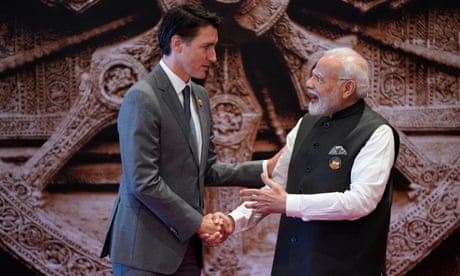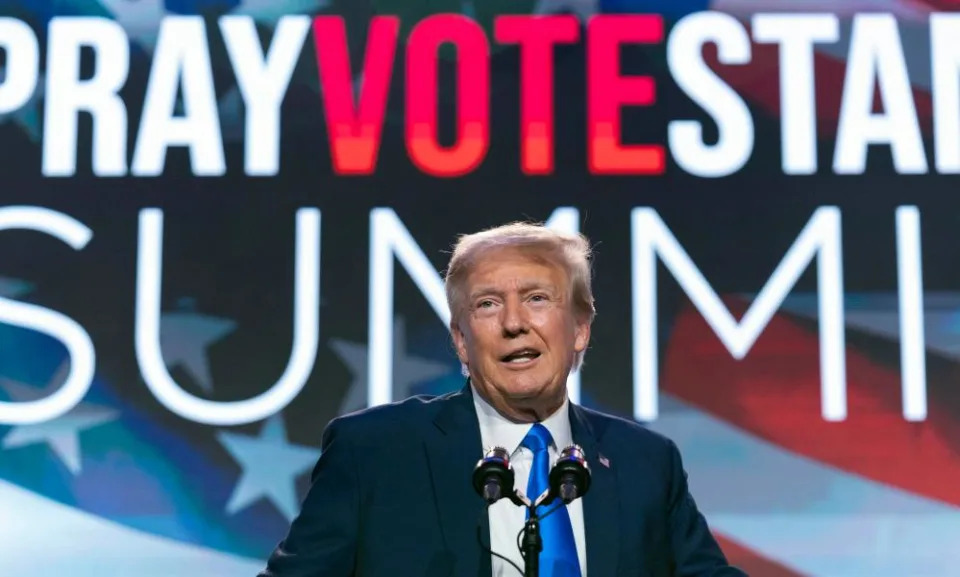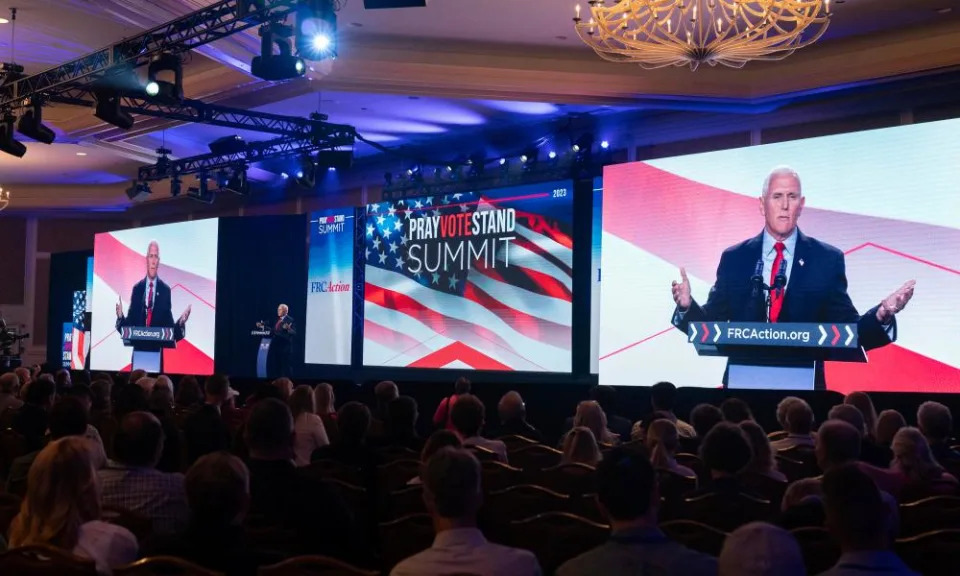India wakes up to 'startling accusations' of government involvement in B.C. killing
Joly's statement
ROB GILLIES



Minister of Foreign Affairs Melanie Joly, left, and Minister of Public Safety, Democratic Institutions and Intergovernmental Affairs Dominic LeBlanc, right, speak to reporters in the Foyer of the House of Commons on Parliament Hill, in Ottawa, Ontario, Monday, Sept. 18, 2023, after Prime Minister Justin Trudeau announced that Canadian authorities had intelligence that India’s government may have had links to the June assassination of a Sikh activist in Canada.
TORONTO (AP) — Canada expelled a top Indian diplomat Monday as it investigates what Prime Minister Justin Trudeau called credible allegations that India’s government may have had links to the assassination in Canada of a Sikh activist.
Trudeau said in Parliament that Canadian intelligence agencies have been looking into the allegations after Sikh leader Hardeep Singh Nijjar, a strong supporter of an independent Sikh homeland known as Khalistan, was gunned down on June 18 outside a Sikh cultural center in Surrey, British Columbia.
Trudeau told Parliament that he brought up the slaying with Indian Prime Minister Narendra Modi at the G-20 last week. He said he told Modi that any Indian government involvement would be unacceptable and that he asked for cooperation in the investigation.
Canadian Foreign Minister Mélanie Joly said the head of Indian intelligence in Canada has been expelled as a consequence.
“If proven true this would be a great violation of our sovereignty and of the most basic rule of how countries deal with each other,” Joly said. “As a consequence we have expelled a top Indian diplomat."
The Indian Embassy in Ottawa did not immediately answer phone calls from The Associated Press seeking comment.
Canada has a Sikh population of more than 770,000, or about 2% of its total population.
“Over the past number of weeks Canadian security agencies have been actively pursuing credible allegations of a potential link between agents of the government of India and the killing of a Canadian citizen, Hardeep Singh Nijjar,” Trudeau said.
Trudeau said Canada has declared its deep concerns to the Indian government. "Any involvement of a foreign government in the killing of a Canadian citizen on Canadian soil is an unacceptable violation of our sovereignty.”
Trudeau said his government has been working closely and coordinating with Canada’s allies on the case.
“In the strongest possible terms I continue to urge the government of India to cooperate with Canada to get to the bottom of this matter,” he said.
Trudeau said he knows there are some members of the Indo-Canadian community who feel angry or frightened, and he called for calm.
Public Safety Minister Dominic LeBlanc said Canada’s national security adviser and the head of Canada’s spy service have travelled to India to meet their counterparts and to confront the Indian intelligence agencies with the allegations.
He called it an active homicide investigation led by the Royal Canadian Mounted Police.
Joly said Trudeau also raised the matter with U.S. President Joe Biden and U.K. Prime Minister Rishi Sunak.
Joly also said she would raise the issue with her peers in the G7 on Monday evening in New York City ahead of the United Nations General Assembly
Relations between Canada and India have been tense. Trade talks have been derailed and Canada just canceled a trade mission to India that was planned for the fall.
Opposition Conservative leader Pierre Poilievre said if the allegations are true they represent ”an outrageous affront to our sovereignty.”
“Canadians deserve to be protected on Canadian soil. We call on the Indian government to act with utmost transparency as authorities investigate this murder, because the truth must come out," Poilievre said.
Opposition New Democrat leader Jagmeet Singh, who is himself Sikh, called it outrageous and shocking. Singh said he grew up hearing stories that challenging India’s record on human rights might prevent you from getting a visa to travel there.
“But to hear the prime minister of Canada corroborate a potential link between a murder of a Canadian citizen on Canadian soil by a foreign government is something I could never have imagined,” Singh said.
The Khalistan movement is banned in India, where officials see it and affiliated groups as a national security threat. But the movement still has some support in northern India, as well as beyond, in countries like Canada and the United Kingdom which are home to a sizable Sikh diaspora.
Modi expressed “strong concerns” over Canada’s handling of the Punjabi independence movement among the overseas diaspora last week during a meeting with Trudeau at the G-20, according to a statement released by India’s Ministry of External Affairs
The statement described the Sikh movement as “promoting secessionism and inciting violence” against Indian diplomats. It called on Canada to work with India on what New Delhi said is a threat to the Canadian Indian diaspora.
The World Sikh Organization of Canada called Nijjar an outspoken supporter of Khalistan who “often led peaceful protests against the violation of human rights actively taking place in India and in support of Khalistan.”
“Nijjar had publicly spoken of the threat to his life for months and said that he was targeted by Indian intelligence agencies,” the statement said.
The human rights advocacy group Sikhs For Justice says peaceful protests will “shut down” Indian consulate offices in Canada next week, with new intelligence appearing to link the Indian state to a high-profile murder in British Columbia.
Hardeep Singh Nijjar, president of the Guru Nanak Sikh Gurdwara, was gunned down in the Surrey temple’s parking lot after evening prayers on June 18. Nijjar, 45, was a prominent community leader and supporter of Sikh separatism. On Monday, Prime Minister Justin Trudeau revealed national security authorities had obtained “credible” intelligence that “agents of the government of India” were behind the grisly killing — something the World Sikh Organization of Canada and others had suggested shortly after Nijjar’s death. Protests were slated to take place outside Indian consulates in Ottawa, Toronto and Vancouver next Monday, according to Gurpatwant Singh Pannun, legal counsel for Sikhs for Justice. Global's Rumina Daya reports.
‘Credible evidence’ India behind alleged assassination of Sikh leader, says Trudeau
India rejects as ‘absurd’ allegation by PM that it was responsible for fatal shooting of Hardeep Singh Nijjar on Canadian soil
Leyland Cecco in Toronto
Justin Trudeau has said there is “credible evidence” India is responsible for the alleged assassination of Hardeep Singh Nijjar, a prominent Canadian Sikh leader, a claim Delhi dismissed as “absurd”.
The Canadian prime minister told the House of Commons of Canada on Monday that, in recent weeks, national security authorities had been probing allegations that New Delhi was behind a state-sponsored assassination.
“Any involvement of a foreign government in the killing of a Canadian citizen on Canadian soil is an unacceptable violation of our sovereignty,” he said. “Canada is a rule-of-law country, the protection of our citizens in defence of our sovereignty are fundamental.

“Our top priorities have therefore been one, that our law enforcement and security agencies ensure the continued safety of all Canadians. And two, that all steps be taken to hold perpetrators of this murder to account.”
Trudeau said the alleged killing “is contrary to the fundamental rules by which free, open, and democratic societies conduct themselves”.
The foreign affairs minister, Mélanie Joly, said Canada had expelled a “key Indian diplomat” and “expects India to fully collaborate with us and ultimately to get to the bottom of this”.
India’s ministry of external affairs said in a statement it “rejected” statements by Trudeau and his foreign minister, adding that allegations of India’s involvement in any act of violence in Canada are “absurd and motivated”.
“We are a democratic polity with a strong commitment to rule of law,” the statement read.
The ministry said it would expel a senior Canadian diplomat in response to Trudeau’s claims. New Delhi’s decision reflects its “growing concern at the interference of Canadian diplomats in our internal matters and their involvement in anti-India activities”, the foreign ministry said.
The allegations from Canada’s prime minister are likely to further strain relations between the two nations. Trudeau said he raised the issue “in no uncertain terms” with the Indian prime minister, Narendra Modi, when the two met briefly in New Delhi last week for the G20 summit.
The New Democratic party leader, Jagmeet Singh, who is Sikh, said there must be consequences for the assassination. “To hear the prime minister of Canada corroborate a potential link between a murder of a Canadian citizen on Canadian soil by a foreign government is something I could never have imagined,” he said.
“We will ensure that no rock is unturned, that every possible link is examined.”
The Conservative leader, Pierre Poilievre, said the allegations, if true, “represent an outrageous affront to Canada”, adding that citizens should be free from extrajudicial killings.
He added: “Canadians deserve to be protected on Canadian soil. We call on the Indian government to act with utmost transparency as authorities investigate this murder, because the truth must come out.”
In June, Nijjar was shot and killed in front of the Guru Nanak Sikh Gurdwara in Surrey, British Columbia. He was a strong advocate of the Khalistan movement, which seeks an independent homeland for Sikhs in India’s Punjab region.
New Delhi had previously alleged Nijjar was part of a plan to murder a Hindu priest in Punjab, offering a bounty of nearly $12,000 (£9,688). The fatal shooting of Nijjar led many to accuse India of playing a role in the killing.
“Today, the prime minister of Canada has publicly said what Sikhs in Canada have known for decades – India actively targets Sikhs in Canada,” said the World Sikh Organisation.
The diplomat expelled by Canada is the head of the Research and Analysis Wing (Raw), India’s foreign intelligence agency in Canada. “We’ll hold the perpetrators accountable and bring them to justice,” said the public safety minister, Dominic LeBlanc, adding the RCMP was leading the murder investigation.
The Indian high commission in Ottawa did not immediately respond to a request for comment.
The announcement comes a week after Trudeau was in New Delhi for the G20, where there were signs of tensions with Modi. After the meeting, Modi’s office said the Indian leader had “strong concerns about continuing anti-Indian activists of extremist elements in Canada”.
India and Canada have been negotiating a trade agreement, but talks have been paused.
Alisha Rahaman Sarkar
Tue, 19 September 2023
India has responded to Justin Trudeau’s allegations of New Delhi being involved in the killing of a separatist leader on Canadian soil.
Mr Trudeau told the Canadian parliament on Monday that the Indian government could be behind the death of Hardeep Singh Nijjar, who was killed on 18 June in the parking lot of a gurudwara in Surry, British Columbia.
The Canadian prime minister said he had raised the killing with his Indian counterpart Narendra Modi "personally and directly" during the G20 summit in September.
“Any involvement of a foreign government in the killing of a Canadian citizen on Canadian soil is an unacceptable violation of our sovereignty,” Mr Trudeau said.
A top Indian diplomat, who was the head of the country’s intelligence agency, has also been expelled as a consequence, Canadian foreign minister Mélanie Joly said.
New Delhi has retaliated by expelling a senior Canadian diplomat. The foreign ministry said the move reflects India’s “growing concern at the interference of Canadian diplomats in our internal matters and their involvement in anti-India activities”.
“The concerned diplomat has been asked to leave India within the next five days,” the foreign ministry was quoted by news agency ANI as saying.
The foreign ministry in a statement earlier in the day said “similar allegations” of the alleged involvement in the killing “were made by the Canadian prime minister to our prime minister, and were completely rejected”.
"Such unsubstantiated allegations seek to shift the focus from Khalistani terrorists and extremists, who have been provided shelter in Canada and continue to threaten India’s sovereignty and territorial integrity," India said, adding that the country was concerned over the inaction of the Canadian government.
"We are a democratic polity with a strong commitment to rule of law."

A sign outside the Guru Nanak Sikh Gurdwara temple is seen after the killing on its grounds in June 2023 of Sikh leader Hardeep Singh Nijjar, in Surrey
India has previously denied any involvement with Nijjar's killing even as it has condemned the rise in support for the Khalistan movement in the West with a sizeable Indian population, such as Canada, the UK and the US.
Mr Nijjar, 46, was a prominent leader of the Sikh secessionist movement that called for a separate homeland for the religious community to be carved out of India's Punjab state.
Canada's allegations against the Indian government come at a time when relations between the two countries are at an all-time low with New Delhi accusing Ottawa of allowing the Khalistan movement to thrive. Trade talks have been derailed and Canada just canceled a trade mission to India that was planned for the fall.
India accused Canadian "political figures" of "openly expressing sympathy for such elements".
"The space given in Canada to a range of illegal activities including murders, human trafficking and organised crime is not new," the statement read.
"We urge the Government of Canada to take prompt and effective legal action against all anti-India elements operating from their soil."
Mr Modi expressed "strong concerns" over Canada's handling of “anti-India activities of extremist elements” during a meeting with Mr Trudeau during the G20 summit, New Delhi had said.
Mr Trudeau responded by saying that Canada will “always defend freedom of expression, freedom of conscience, and freedom of peaceful protest and it is extremely important to us... at the same time we are always there to prevent violence and to push back against hatred”.
The Canadian prime minister reportedly raised Nijjar’s killing with US president Joe Biden and UK prime minister Rishi Sunak.
“We are deeply concerned about the allegations referenced by prime minister Trudeau,” said White House national security council spokesperson Adrienne Watson.
“We remain in regular contact with our Canadian partners. It is critical that Canada’s investigation proceed and the perpetrators be brought to justice.”
Explainer: what’s behind the growing tensions between Canada and India?
Justin Trudeau has said there is ‘credible’ evidence that Indian government agents were behind the alleged assassination of Sikh leader
Guardian staff and agencies
Canada’s prime minister, Justin Trudeau, announced on Monday that there was “credible” information linking Indian government agents to the murder of a Sikh separatist leader in British Columbia in June.
The announcement marks a significant worsening of bilateral ties between the two countries at a time when India is already unhappy that Canadian authorities are not cracking down on Sikh protesters who want their own independent homeland.
On Tuesday, an Indian government spokesperson called the allegations “absurd and motivated”, adding that “similar allegations were made by the Canadian prime minister to our prime minister, and were completely rejected.”
Canadian authorities also say they have expelled a “key Indian diplomat”. The diplomat is the head of India’s foreign intelligence agency in Canada.
Who was Hardeep Singh Nijjar?
On 18 June this year Hardeep Singh Nijjar was shot dead outside a Sikh temple in Surrey, British Columbia.
Nijjar had campaigned for an independent Sikh nation – known as Khalistan – to be carved out of India’s Punjab state. He was wanted by Indian authorities and had been designated as a “terrorist” in July 2020.
He had been warned by Canada’s spy agency about threats against him, according to the World Sikh Organization of Canada, which alleged he was “assassinated in a targeted shooting”.
India’s Punjab state – which is about 58% Sikh and 39% Hindu – was rocked by a violent Khalistan separatist movement in the 1980s and early 1990s, in which thousands of people died. Today, that movement’s most vocal advocates are primarily among the Punjabi overseas diaspora.
Why is India focused on Canada’s Sikh community?
Canada is home to one of the largest overseas communities of Indian origin, which number approximately 1.4 million out of an overall Canadian population of 40 million. About 770,000 people reported Sikhism as their religion in the 2021 census.
Canada has the highest population of Sikhs outside their home state of Punjab.

India has often complained to Canada’s governments about the activities of Sikh hardliners among the Indian diaspora who, it says, are trying to revive the insurgency.
In June, India’s foreign minister hit out at Canada for allowing a float in a parade depicting the 1984 assassination of then-Indian prime minister Indira Gandhi by her bodyguards, perceived to be glorification of violence by Sikh separatists.
In 2018, Trudeau assured India that Canada would not support anyone trying to revive a separatist movement in India but he has repeatedly said he respects the right to free speech and assembly of protesters to demonstrate.
What does this mean for Canada-India relations?
The two countries, which earlier this year said they could agree the outlines of a trade deal by the end of 2023, have now frozen talks on the agreement. Canada gave few details while India cited “certain political developments”.
India is Canada’s tenth largest trading partner and plans for a trade deal have been in the pipeline for over a decade. However, in 2022, bilateral trade between the two amounted to just C$13.7bn out of a total of C$1.52 trillion of all Canadian trade, according to Statistics Canada.
After rejecting the allegations in a statement on Tuesday, the Indian government urged Trudeau to take actions against, what it termed, “anti-India elements” operating from inside Canada and followed this up by ordering a senior Canadian diplomat to leave the country.
Reuters contributed to this report
Canada trade minister is postponing
a planned trade mission to India
Fri, September 15, 2023

Canada's Minister of International Trade, Export Promotion, Small Business and Economic Development Mary Ng speaks at a Lunar New Year celebration in Ottawa
By Steve Scherer
OTTAWA (Reuters) - Canadian Trade Minister Mary Ng is postponing a trade mission to India planned for October, an official said on Friday, reflecting increasingly tense diplomatic relations just days after India's prime minister scolded his Canadian counterpart at a G20 summit in New Delhi.
"At this time, we are postponing the upcoming trade mission to India," said Shanti Cosentino, a spokesperson for the minister, without giving a reason.
Indian Prime Minister Narendra Modi, who held formal bilateral meetings with many world leaders during the G20 summit, snubbed Canadian Prime Minister Justin Trudeau, allowing only a short, informal meeting on the sidelines five days ago.
Canada has the highest population of Sikhs outside their home state of Punjab in India, and the country has been the site of many protests that have irked India.
"They are promoting secessionism and inciting violence against Indian diplomats, damaging diplomatic premises and threatening the Indian community in Canada and their places of worship," India's government said after the leaders met.
Earlier on Friday, India said it had paused trade talks with Canada. Canada made a similar announcement earlier this month, saying such a pause was needed to "take stock".
Only about four months ago the two nations said they aimed to seal an initial trade agreement this year.
(Reporting by Steve Scherer in Ottawa; Editing by Chris Reese and Matthew Lewis)
Trudeau Says India Involved in Killing of Khalistani Supporter, Sparks Diplomatic Row
Firstpost
Sep 19, 2023
Trudeau Says India Involved in Killing of Khalistani Supporter, Sparks Diplomatic Row
Canadian Prime Minister Justin Trudeau has accused India of being involved in the killing of a Khalistani supporter. Canada has also expelled a senior Indian diplomat. This was done in an emergency parliament session held by Trudeau.
Canada’s Foreign Minister Melanie Joly has demanded India to comply with their demands.
Meanwhile, India has dismissed Trudeau’s allegations and slammed him for supporting anti-India activities. India has also expelled a Canadian diplomat and asked the envoy to leave within the next five days.




